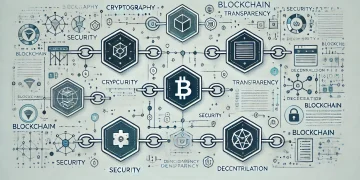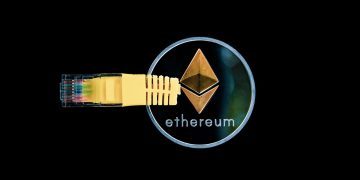In the rapidly evolving world of cryptocurrency trading, one of the most important decisions for traders is choosing between a centralized exchange (CEX) and a decentralized exchange (DEX). Each type of exchange offers its own set of advantages and disadvantages, influencing factors such as control over assets, security, transaction speed, and liquidity. As the cryptocurrency market continues to grow, understanding the pros and cons of both centralized and decentralized exchanges is crucial for traders seeking to optimize their trading strategies.
This article will provide an in-depth comparison of centralized and decentralized exchanges, highlighting the key differences and exploring the strengths and weaknesses of each from a trader’s perspective.
1. Introduction to Centralized and Decentralized Exchanges
A. Centralized Exchanges (CEXs)
Centralized exchanges are platforms managed by a central authority or company, which acts as an intermediary between buyers and sellers of cryptocurrencies. Users must create accounts, undergo identity verification (often through Know Your Customer or KYC processes), and deposit their funds into the exchange’s wallet. Examples of prominent CEXs include Binance, Coinbase, Kraken, and Bitfinex.
CEXs dominate the cryptocurrency market, handling the vast majority of trading volume due to their user-friendly interfaces, robust liquidity, and extensive feature sets. However, users must trust the centralized platform to store and manage their funds securely.
B. Decentralized Exchanges (DEXs)
Decentralized exchanges operate without a central authority, using blockchain technology and smart contracts to facilitate peer-to-peer trading. On a DEX, users trade directly from their wallets without the need to deposit funds onto the exchange. Popular decentralized exchanges include Uniswap, SushiSwap, PancakeSwap, and Curve.
DEXs aim to offer a more secure and private trading experience by eliminating intermediaries. They are typically favored by users who prioritize autonomy and security over convenience, though they tend to have lower liquidity and fewer features than their centralized counterparts.
2. Pros and Cons of Centralized Exchanges for Traders
A. Pros of Centralized Exchanges
- High Liquidity and Trading Volume Centralized exchanges benefit from deep liquidity pools, enabling traders to execute large trades with minimal price slippage. High liquidity ensures that buy and sell orders can be fulfilled quickly, providing a smoother trading experience, particularly for professional traders and institutional investors.
- User-Friendly Interface CEXs are designed with ease of use in mind, offering intuitive platforms that cater to both novice and experienced traders. Features such as charting tools, order types (e.g., market, limit, stop-loss orders), and margin trading are readily accessible, making CEXs a popular choice for traders seeking a comprehensive suite of tools.
- Advanced Features and Services Centralized exchanges offer a wide range of advanced services, including derivatives trading (e.g., futures, options), staking, lending, and fiat on-ramps. These features provide traders with more flexibility and opportunities to diversify their strategies, such as hedging or earning passive income on their holdings.
- Customer Support and Assistance CEXs often provide customer support services, which can be crucial for traders who encounter issues during the trading process. Having access to a support team offers a level of reassurance, especially for users who are new to cryptocurrency trading.
- Regulatory Compliance Many centralized exchanges are regulated and operate in compliance with the legal requirements of their respective jurisdictions. This provides an added layer of security for traders, especially in regions where cryptocurrency regulations are evolving, and ensures that exchanges follow anti-money laundering (AML) and KYC protocols.
B. Cons of Centralized Exchanges
- Custodial Risk and Lack of Control One of the most significant downsides of centralized exchanges is the custodial nature of their services. When traders deposit their assets onto a CEX, they relinquish direct control of their funds, trusting the exchange to safeguard their assets. This exposes traders to the risk of hacks, fraud, or mismanagement. Notably, several CEXs have suffered high-profile security breaches, such as Mt. Gox and Bitfinex.
- Privacy Concerns To comply with regulations, centralized exchanges typically require users to complete identity verification through KYC procedures. While this enhances security, it also compromises user privacy by collecting sensitive personal information, which could be at risk if the exchange’s data is hacked or leaked.
- Regulatory Risks Centralized exchanges face regulatory pressures that can affect traders. In some cases, exchanges may be forced to freeze accounts or restrict access to certain users due to legal or government interventions. This can be particularly problematic for traders in jurisdictions with unclear or hostile cryptocurrency regulations.
- Downtime and Centralized Failures Centralized exchanges are vulnerable to technical failures, downtime, or server overloads during periods of high market activity. These issues can prevent traders from accessing the platform or executing trades at critical times, leading to missed opportunities or financial losses.
3. Pros and Cons of Decentralized Exchanges for Traders
A. Pros of Decentralized Exchanges
- Full Control Over Funds One of the primary benefits of DEXs is that traders retain full control of their funds throughout the entire trading process. Users trade directly from their wallets, and assets are never held by a third party. This eliminates custodial risks, providing a greater level of security and autonomy.
- Increased Privacy and Anonymity Decentralized exchanges generally do not require users to undergo KYC or provide personal information. This offers traders a higher level of privacy and anonymity compared to centralized platforms, making DEXs appealing to users who prioritize confidentiality and want to avoid intrusive verification processes.
- Censorship Resistance Since DEXs are built on decentralized blockchain technology, they are inherently more resistant to censorship or government intervention. This ensures that users in regions with restrictive financial systems can still participate in cryptocurrency trading without fear of their accounts being frozen or their access being revoked.
- Lower Risk of Exchange Hacks DEXs minimize the risk of large-scale exchange hacks because there is no centralized pool of funds for hackers to target. Instead, each user maintains control over their assets, reducing the potential impact of a security breach on the exchange.
- Permissionless Trading On a DEX, anyone can trade without needing approval or account verification. This aligns with the principles of decentralization and open access, allowing traders from any part of the world to participate without geographical or regulatory limitations.
B. Cons of Decentralized Exchanges
- Low Liquidity and High Slippage One of the most significant drawbacks of decentralized exchanges is the relatively low liquidity compared to centralized platforms. This can result in higher price slippage, especially for large trades, meaning that the final price of an asset might differ significantly from the expected price, leading to less favorable trading outcomes.
- Limited Features DEXs are generally more limited in terms of advanced trading features and tools. While many CEXs offer derivatives, margin trading, and other complex financial instruments, DEXs tend to focus on spot trading with fewer options. This can be a disadvantage for traders looking for a broader array of strategies or products.
- User Experience and Complexity The user experience on decentralized exchanges is often less intuitive compared to centralized platforms. Traders need to be familiar with setting up wallets, managing private keys, and interacting with blockchain technology. This complexity can be a barrier to entry for novice traders or those seeking a more streamlined process.
- Transaction Speed and Gas Fees Since DEXs operate on blockchain networks, transaction speed is often slower, particularly during periods of high network congestion. For example, Ethereum-based DEXs can experience long delays and high gas fees during peak times. These fees can eat into traders’ profits, making DEXs less cost-effective for smaller trades.
- Smart Contract Vulnerabilities DEXs rely heavily on smart contracts to execute trades. While smart contracts are designed to be secure, they are not immune to bugs or vulnerabilities. If a smart contract is poorly coded, it can be exploited, potentially leading to the loss of funds for users. Although rare, such incidents have occurred in the past, causing traders to lose significant amounts of capital.
4. Key Differences Between Centralized and Decentralized Exchanges
| Feature | Centralized Exchange (CEX) | Decentralized Exchange (DEX) |
|---|---|---|
| Control over funds | Custodial: Exchange holds users’ funds | Non-custodial: Users retain full control of their funds |
| Privacy and KYC | KYC required for most platforms | No KYC, higher level of privacy |
| Security risk | Vulnerable to exchange hacks | Reduced risk of hacking, but smart contract risks exist |
| Liquidity | High liquidity and low slippage | Lower liquidity, higher slippage |
| Advanced features | Margin trading, derivatives, staking, fiat gateways | Primarily spot trading, limited advanced features |
| User experience | User-friendly, suitable for beginners | More complex, requiring familiarity with blockchain technology |
| Transaction speed | Fast transactions with minimal fees | Dependent on blockchain, can be slower with higher gas fees |
| Regulatory compliance | Regulated, must comply with local laws | Unregulated, offering censorship resistance |
5. Which Is Better for Traders: CEX or DEX?
The choice between a centralized exchange and a decentralized exchange depends on the trader’s individual preferences, goals, and risk tolerance. Here are some key considerations:
A. When to Choose a Centralized Exchange
- For High Liquidity: If fast execution and minimal price slippage are important, especially for large trades, a centralized exchange may be the better option.
- For Advanced Features: Traders looking for derivatives, margin trading, or other complex financial products will benefit from the broader array of tools available on CEXs.
- For Ease of Use: Centralized exchanges are more beginner-friendly and offer customer support, making them ideal for novice traders or those who prefer a more guided experience.
B. When to Choose a Decentralized Exchange
- For Privacy and Control: If maintaining full control over assets and prioritizing privacy are paramount, a DEX provides the necessary autonomy and anonymity.
- For Censorship Resistance: Traders who operate in regions with restrictive financial regulations or fear government intervention may prefer the censorship-resistant nature of DEXs.
- For Reducing Custodial Risk: Decentralized exchanges are a better choice for those who want to avoid the risks associated with trusting a third party to hold their funds.
Conclusion: The Future of CEXs and DEXs
Both centralized and decentralized exchanges offer distinct advantages and disadvantages for traders. Centralized exchanges remain dominant due to their liquidity, user-friendly interfaces, and advanced trading features, but decentralized exchanges have gained significant traction by providing greater security, privacy, and autonomy.
As the cryptocurrency ecosystem evolves, it is likely that both CEXs and DEXs will coexist, catering to different segments of the market. The future may see hybrid models that combine the best features of both systems, providing traders with more flexible and secure trading experiences.















































